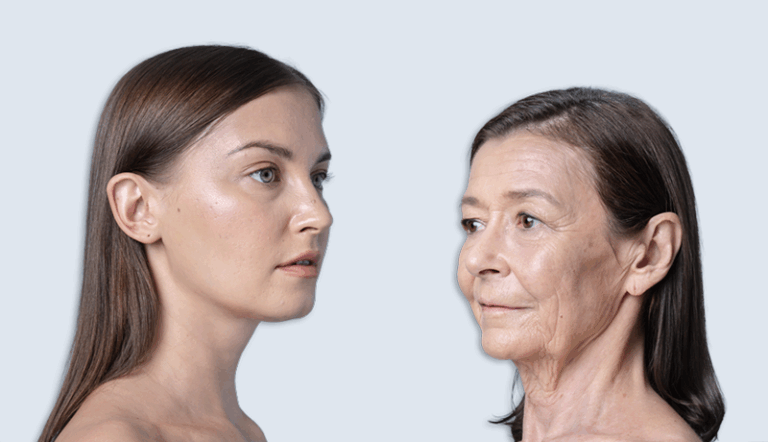Dr. Ahmet Özyiğit was born in 1981 in the Famagusta district of Cyprus. Ozgen and Dr. He is the youngest of Savaş Özyiğit's three children.
After completing his high school education at Türk Maarif College in 1998, he completed his undergraduate and graduate studies in economics in the American state of Kansas. Özyiğit, who later completed his doctorate education in the same field of science, published many articles in this field.
Özyiğit, who later became interested in medical science, studied medicine at the University of Nicosia Faculty of Medicine. In addition to this education, he received his master's degree in Clinical Embryology from the University of Leeds and postgraduate education in Endocrinology from the University of South Wales.
With an eclectic academic background, Dr. Özyiğit continues his clinical studies, especially on weight loss, metabolism and healthy aging. An active member of the American Academy of Anti-Aging Medicine, Dr. Özyiğit applies anti-aging, weight loss and brain function improving treatments to his patients.

Wellness and Anti-aging Applications

Wellness and Anti-aging Applications
Intermittent Fasting and Food Sensing Mechanisms

Aging was accepted as a natural process of every living thing and was considered a part of our lives; until it was categorized as a disease by the World Health Organization (WHO) in June 2018. When it is accepted as a disease, we prevent aging from being used as a single definition.
Aging occurs with the decline of some visual, motor and cellular skills. If we see aging as a disease, it becomes reality that the course of the disease can be slowed down or accelerated. For example, we can guess that smoking and alcohol use, unhealthy diet and a sedentary lifestyle age our organs and tissues earlier. So, is it possible to reduce the effects of aging and slow the course of this disease by targeting our cells, which are the basis of our vital activities?
In order to target cellular rejuvenation or slowing down of aging, some activities that already exist in our body have been scrutinized and examined. One of these is the 'nutrient sensing pathway'.
The nutrient sensing mechanism has a very important role in our cellular health. Our cells are equipped with certain receptors. These receptors signal how much food there is in our body. For example, increased glucose and amino acid levels, as well as interactions such as insulin, insulin-like growth factor, ATP and NADH triggered by the nutrients consumed.
The best known and defined nutrient sensing mechanisms in our body are called mTOR, IGF-1, Sirtuin-NAD and AMPK.
Mammalian target for rapamycin (mTOR), or mammalian target of rapamycin, regulates cellular growth, autophagy and apoptosis processes depending on many signaling networks. Many scientific studies have shown that the mTOR mechanism is also associated with cancer, arthritis, insulin resistance, osteoporosis and other diseases.
mTOR is a mechanism that is activated depending on amino acid levels. As the amount of dietary protein consumed increases, the level of amino acids released in the intestines will increase and, accordingly, the mTOR mechanism will become more active.
Insulin-like growth factor (IGF-1) is a mechanism that is activated by the increase in insulin level in the body. An increase in glucose level is required for insulin levels to increase. In this case, consuming sugary and starchy foods will activate insulin, and insulin will activate IGF-1.
Sirtuin-NAD It is a mechanism that detects cellular energy production and is activated when cellular energy levels decrease. Sirtuins are deacylases that vary in NAD+-dependent level. When sirtuins are activated, they increase metabolic efficiency and enable us to resist oxidative stress by upregulating mitochondrial oxidative metabolism. In addition, they play a major role in damage repair by supporting the increase of antioxidant pathways. Since the low cellular energy level usually occurs when food is not consumed, the NAD level will be low during starvation and this mechanism will work and produce more cellular energy. The AMPK mechanism, just like the Sirtuin-NAD mechanism, is a mechanism that is activated by sensing AMP deficiency.
In short, it is possible to talk about the existence of four basic food perception mechanisms that are activated depending on food intake or hunger level. When there is a large amount of nutrients in the body, mTOR and IGF-1 mechanisms, which increase the rate of aging, will work more actively. On the other hand, when there is a small amount of nutrients in the body, the activity of these two mechanisms will be low and sirtuin-NAD and AMPK, which are mechanisms that provide cellular energy production and regulate cellular repair enzymes and recycling pathways, will work more actively.
At this point, we understand how important nutrition types such as intermittent fasting or calorie restriction can actually be for our health. Fasting and not eating food for a long time can both make us healthier cellularly and prolong life through sirtuin activation.
In addition to sirtuin activation, treatments aimed at increasing NAD+ levels also allow this mechanism to function effectively. You can find information about how to increase NAD+ levels and how to apply NAD+ IV infusion as an anti-aging treatment in the relevant blog post.



